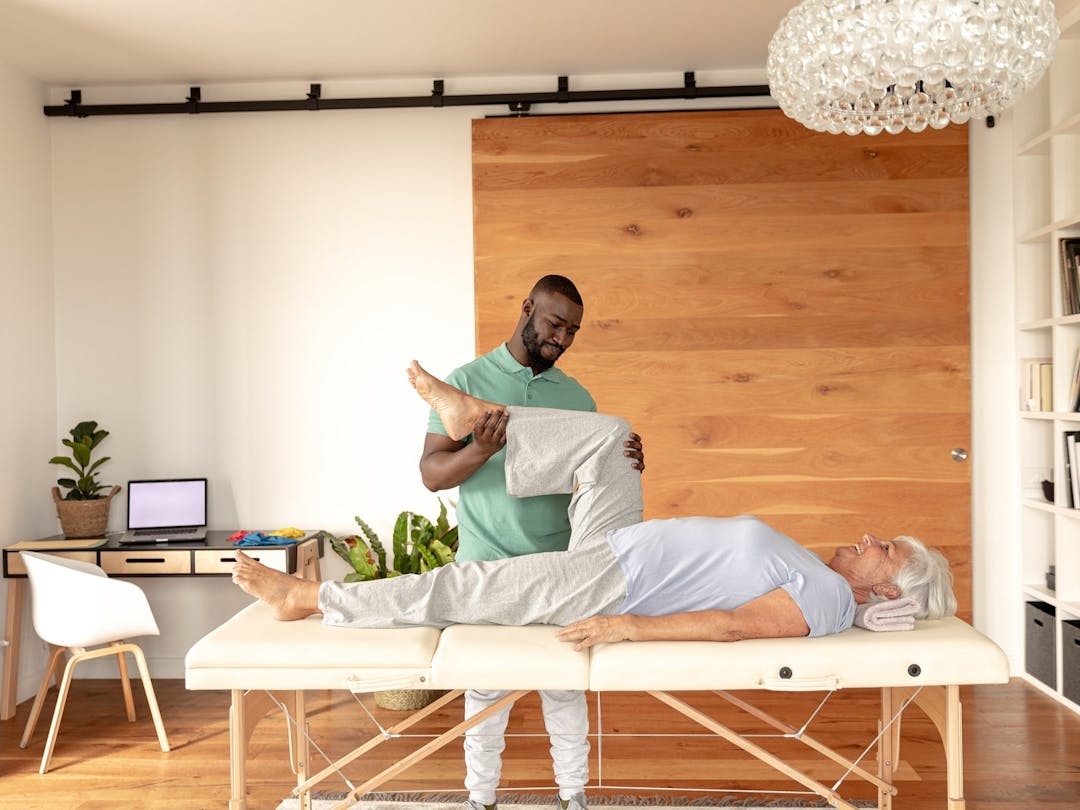
This installment of our Too Embarrassed to Ask Series focuses on erectile dysfunction, commonly referred to as ED.
Sometimes the most important health questions are the ones you’re too mortified to ask. You know your doctor’s a professional who’s heard it all before, but there’s just no way you’re bringing THAT issue up. We hear you. In our “Too Embarrassed to Ask” series, we’ll tackle your most uncomfortable questions. (And when you’re done reading, just clear your browser history. We’ll never tell.)
Did you know 30 million men experience erectile dysfunction, or impotence, in the United States? It becomes more common as you get older: it affects only about 40% of men at age 40, but 70% at age 70.
Erectile dysfunction, otherwise known as ED, means you can’t get an erection that’s firm enough to have intercourse. It can happen just occasionally, or be an everyday ordeal. But it often comes on gradually: you may find that you can still reach the finish line, even if it takes longer to get there.
“It’s usually a slow, progressive problem,” Adam Ramin, M.D., medical director of Urology Cancer Specialists in Los Angeles, told "Men’s Health" this past April. “Initially, a patient may notice that his erections are not as firm, or that he isn’t able to maintain his erections for as long as before.”
What causes erectile dysfunction?
Although you’re more likely to get erectile dysfunction as you get older, age itself doesn’t cause ED. (Confusing, right?) But certain diseases and medical conditions that may contribute to ED are more likely to occur when you’re older. These include:
Heart disease
When your penis is erect, the arteries that carry blood to your penis dilate, so that more blood flows into it and allows it to swell. But if your arteries are clogged (a condition called atherosclerosis), this causes a reduction in blood flow.
In fact, erection trouble can often be the first sign of heart disease! Clogged arteries often affect the penis first, before your heart and brain. So, ED may be a warning sign that if you don’t clean up your act, you could have a heart attack or a stroke within three to five years. Guys with ED are actually twice as likely to experience one than guys without, even if they don’t have other risk factors like being overweight or smoking.
Neurological problems
In order to have an erection, your nerves release chemicals that increase blood flow into your penis. But they can become damaged from conditions like stroke, type 2 diabetes, multiple sclerosis, or Parkinson’s disease.
Depression
If you are under a lot of stress, or feel depressed and/or anxious, then you’ll lose interest in many things that you normally enjoy, including sex. It can lead to a vicious cycle: you’re down, so you can’t focus on sex, but your erection problems leave you feeling even worse.
You can also develop performance anxiety. If you’re suddenly having problems getting erect, you may feel understandably nervous the next time you’re in the bedroom. As a result, your erection becomes the focus of your between-the-sheets experience. That’s a recipe for disaster!
Cancer surgery
If you’ve had surgery or radiation near your pelvis to treat certain cancers like prostate, colon, or bladder, you may get a side effect that you didn’t bargain for: ED.
Certain medications
About 25% of all cases of ED are due to side effects from drugs! These include:
- Blood pressure meds like diuretics and beta blockers
- Antidepressants like SSRIs
- Antihistamines
- Anti-androgens (used to treat prostate cancer)
- Propecia, a drug used to treat baldness
- Anticholinergics (used to treat incontinence, COPD, and symptoms of Parkinson’s disease)
If you think a medication may be causing your ED, it’s very important to talk to your doctor and not just stop taking it. Oftentimes, your doctor can substitute another drug that won’t have that side effect.
What can I do to treat erectile dysfunction?
You don’t have to live with ED. There are plenty of good treatment options out there that can help you have a satisfying sex life well into your golden years. Here are some of your options:
Lifestyle changes
You’ll want to lower stress and anxiety levels, both of which can contribute to ED. Get plenty of shut eye, exercise regularly, and eat a healthy diet. If you smoke, stop; it’s also been linked to ED.
Drugs
Drugs known as PDE type-5 inhibitors increase blood flow to your penis. They include:
It’s recommended that you take them an hour or two before having sex. They restore erections in about 70% of men. But if you have a condition that affects nerve function to your penis, like diabetes or a past prostate cancer surgery, you’re less likely to respond to them.
Penile self-injection
With this treatment, you inject a medication called alprostadil or papaverine into your penis. You can do it by yourself, at home. The drug allows the blood vessels in your penis to expand without sexual stimulation (unlike the erection that occurs from taking an oral drug like sildenafil).
The downside? It can be painful, and it may take a while before you feel comfortable doing it on your own. There’s also a small chance – between 6 and 11% – that your penis will remain hard even after sex. If that lasts for longer than four hours, it’s considered a medical emergency and you’ll have to go to the ER. That can definitely put a damper on an otherwise romantic evening!
Can’t handle the idea of self-injection? Your doctor may suggest intraurethral alprostadil. Instead of injecting alprostadil, you insert an alprostadil pellet into your urethra. This is less uncomfortable than self-injection. It’s also less likely to cause a four-hour erection.
Vacuum-assisted erection device
This is a plastic seal that you slip over your penis so that it acts like, well, a vacuum and increases penile blood flow. Once you’re hard, the seal is slipped off and an elastic ring is put on to hold the blood in your penis. You have to be comfortable holding and pumping the unit yourself, and you can’t ejaculate (come) with it on because the ring prevents semen from leaving.
Penile Prosthesis
This is a semi-rigid rod or inflatable cylinders that’s surgically implanted into your penis. It’s an option if you haven’t responded to any of the above treatments.
Talk Therapy
Even if you’re not depressed, erectile dysfunction can lead to performance anxiety in the bedroom. That just adds more fuel to an already combustible situation. Your doctor can refer you for psychological counseling, or even to a certified sexual therapy counselor to address feelings of fear, anxiety, or guilt. These therapists can also help your partner cope with your ED, too, so that the two of you form a winning partnership.
Getting past embarrassment
So all these new treatments sound great…but there’s one problem. There’s no way you feel comfortable bringing up your ED with your doctor. But it’s really important that you do – in fact, it could save your life! ED isn’t just a bedroom problem. It can indicate another, underlying medical condition, like heart disease.
Hopefully, your doctor will ask about any issues with sex during your annual wellness visit. But if they don’t, raise the issue yourself. Remember, the majority of men over age 70 are dealing with ED, so your doctor talks about this problem A LOT.
Be direct and straightforward: “I’m having trouble getting erections,” or “I’m having some problems in the bedroom.” Practice saying them aloud before your appointment to boost your confidence and comfort level.
Medicare and Erectile Dysfunction
Original Medicare won’t cover treatments for ED, like medications such as Viagra. However, they may cover generics if your doctor prescribes it for a different, medically necessary condition, such as to treat pulmonary arterial hypertension (PAH). Some Medicare Advantage plans will cover generic versions of these drugs, but usually not brand name options. Curious how your current plan compares to other Medicare plans in your area? Check out our easy-to-use Find a Plan tool.
Additional resources
- ClearMatch Medicare: Find a Medicare Plan
- National Institute of Health: Definition & Facts for Erectile Dysfunction
- Cleveland Clinic: Erectile Dysfunction
- Men’s Health: 9 Signs You May Have Erectile Dysfunction
- American Heart Association: Erectile Dysfunction May Be Warning Sign for More Serious Health Problems
- Harvard Medical School: Some Drugs May Cause Your Erectile Dysfunction



